The word ‘moon’ appears in the name of several Wetherspoon pubs, linking them with the ideal pub envisaged by George Orwell. He called the fictitious pub ‘Moon Under Water’. The Moon on the Square opened in the early 1990s, in the former Cricketers public house. Built in 1965, it replaced the earlier Cricketers which had been on the same site since c1934. Originally, in c1862, the pub was at Feltham Green, where it had begun as a beer house.
A photograph and text about the Aston Martin Feltham Factory.
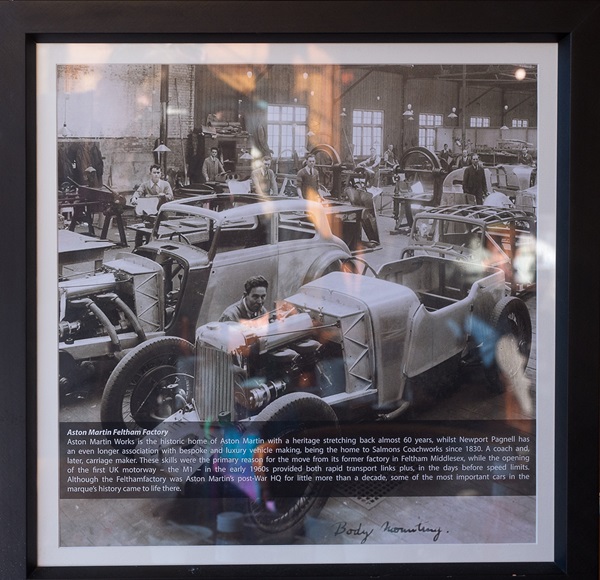
The text reads: Aston Martin Works is the historic home of Aston Martin with a heritage stretching back almost 60 years, whilst Newport Pagnell has an even longer association with bespoke and luxury vehicle making, being the home to Salmons Coachworks since 1830. A coach and, later, carriage maker. These skills were the primary reason for the move from its former factory in Feltham Middlesex, while the opening of the first UK motorway – the M1 – in the early 1960s provided both rapid transport links plus, in the days before speed limits. Although the Feltham factory was Aston Martins post-war HQ for little more than a decade, some of the most important cars in the marques history came to life there.
Prints and text about Feltham House and Feltham Manor House.
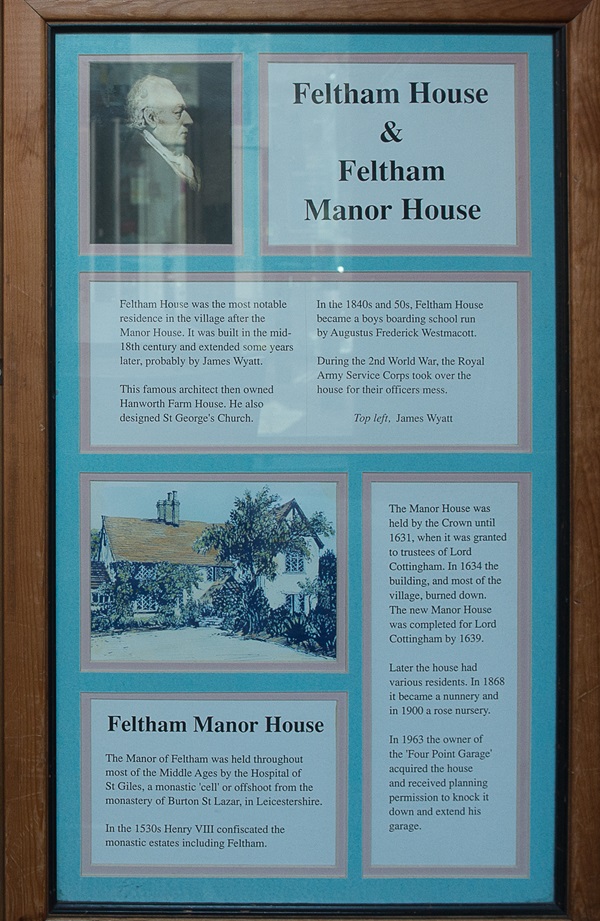
The text reads: Feltham House was the most notable residence in the village after the Manor House. It was built in the mid-18th century and extended some years later, probably by James Wyatt.
This famous architect then owned Hanworth Farm House. He also designed St Georges Church.
In the 1840s and 50s, Feltham House became a boys boarding school run by Augustus Frederick Westmacott.
During the 2nd World War, the Royal Army Service Corps took over the house for their officer’s mess.
The Manor House was held by the Crown until 1631, when it was granted to trustees of Lord Cottingham. In 1634 the building, and most of the village, burned down. The new Manor House was completed for Lord Cottingham by 1639.
Later the house had various residents. In 1868 it became a nunnery and 1900 a rose nursery.
In 1963 the owner of the owner of the Four Point Garage acquired the house and received planning permission to knock it down and extend his garage.
The Manor of Feltham was held throughout most of the Middle Ages by the hospital of St Giles, a monastic ‘cell’ or offshoot from the monastery of Burton St Lazar, in Leicestershire.
In the 1530s Henry VIII confiscated the monastic estates including Feltham.
A photograph and text about the war heroes, and the evacuations during WW2.
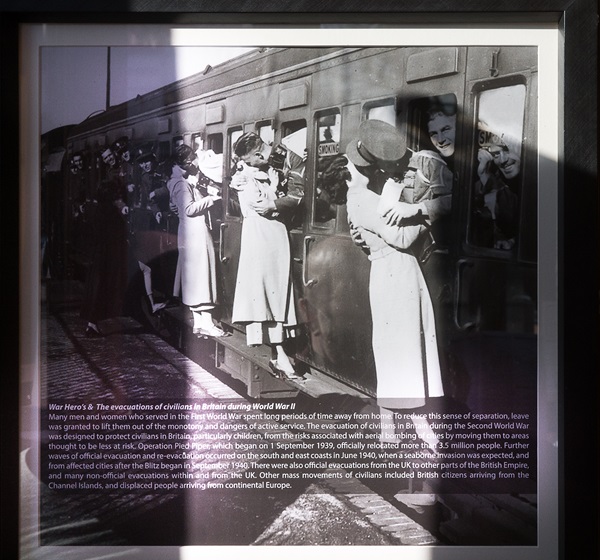
The text reads: Many men and women who served in the First World War spent long periods of time away from home. To reduce this sense of separation, leave was granted to lift them out of the monotony and dangers of active service. The evacuation of civilians in Britain during the Second World War was designed to protect civilians in Britain, particularly children, from the risks associated with aerial bombing of cities by moving them to areas thought to be less at risk. Operation Pied Piper, which began on 1 September 1939, officially relocated more than 3.5 million people. Further waves of official evacuation and re-evacuation occurred on the south and east coasts in June 1940, when a seaborne invasion was expected, and from affected cities after Blitz began in September 1940. There were also official evacuations from the UK to other parts of the British Empire, and many non-official evacuations within and from the UK. Other mass movements of civilians included British citizens arriving from the Channel Islands, and displaced people arriving from continental Europe
Artwork inspired by the pub’s name and history.
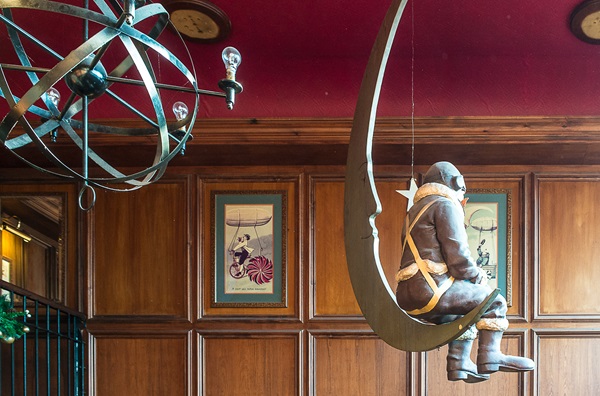
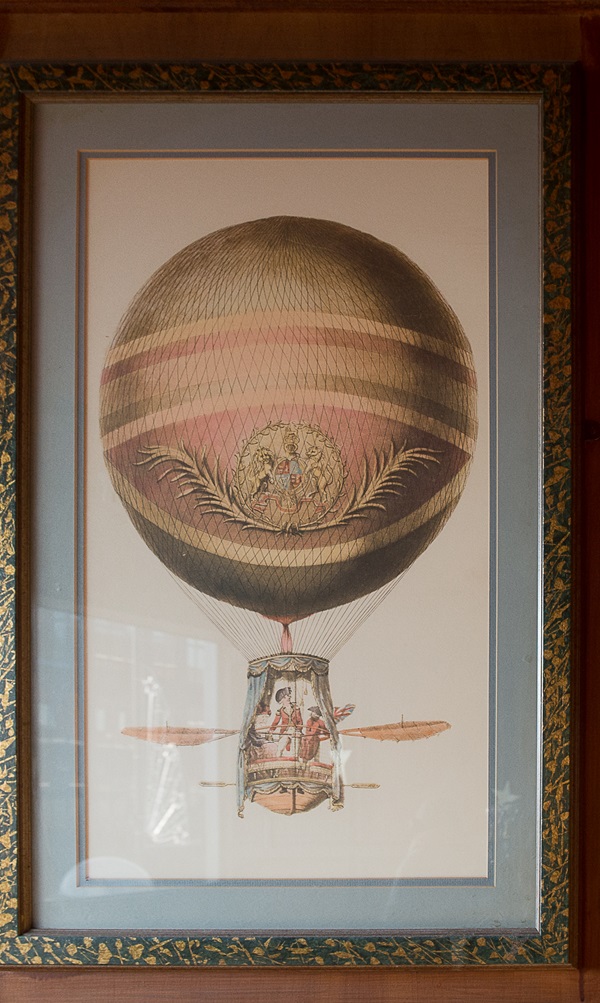
A photograph of Sir Winston Churchill’s funeral train passing through Feltham, 1965.
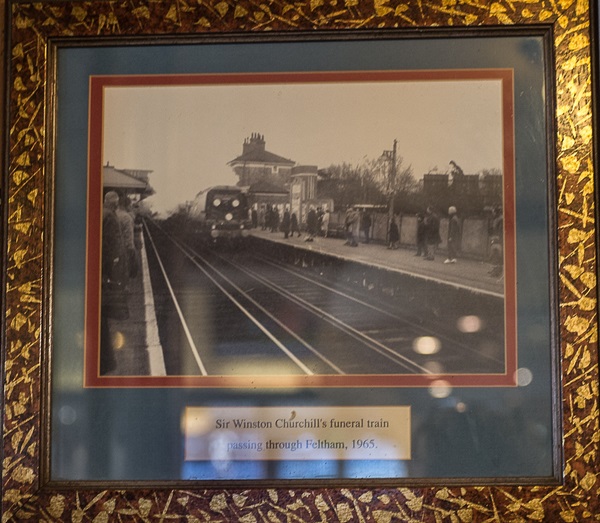
Photographs of the green, Feltham, c1908.
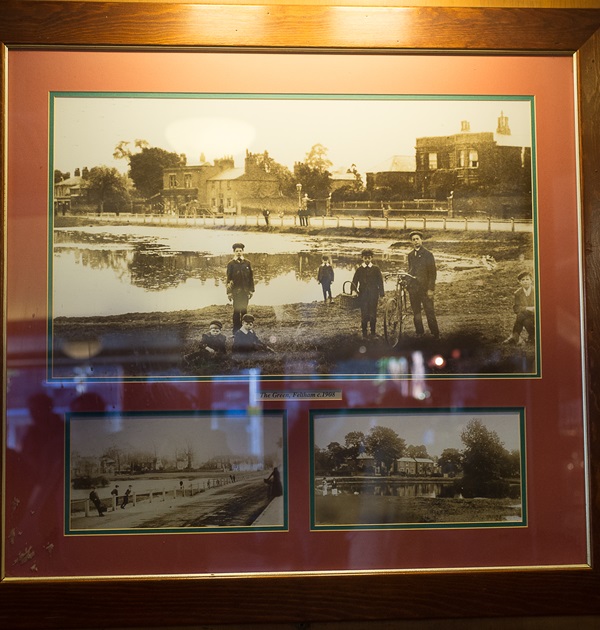
A photograph of St Dunstans Road, Feltham.
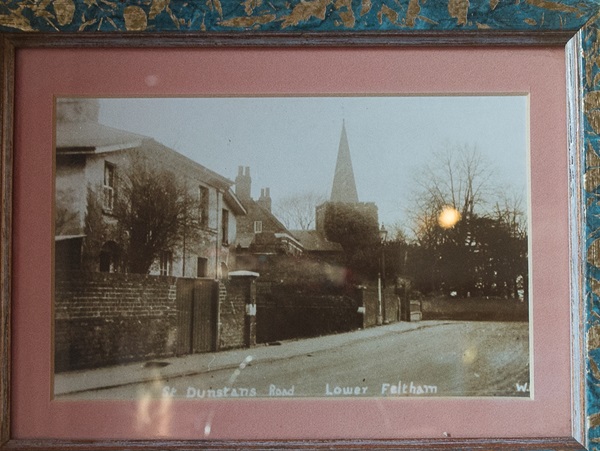
A photograph of Harlington Road, Feltham.
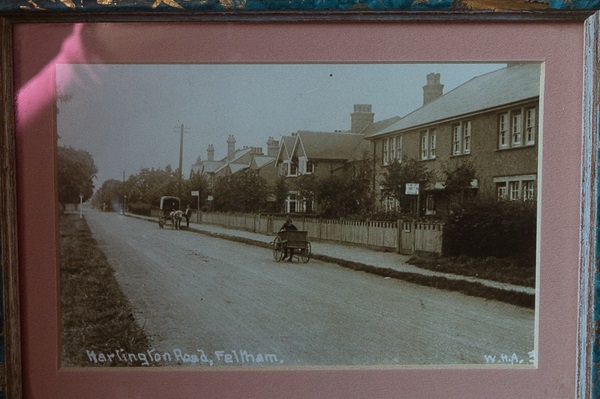
External photograph of the building – main entrance.
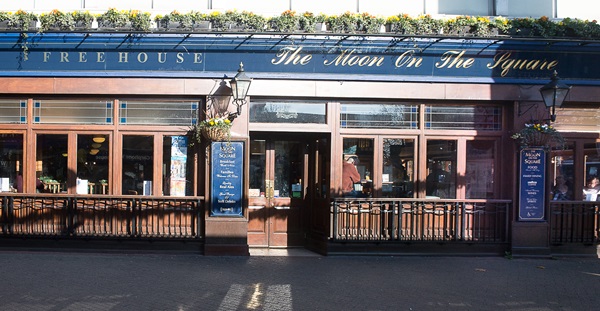
If you have information on the history of this pub, then we’d like you to share it with us. Please e-mail all information to: pubhistories@jdwetherspoon.co.uk